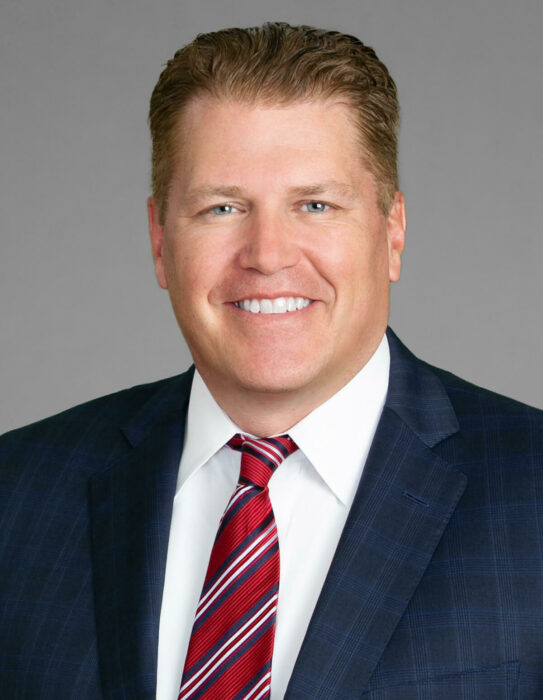Why Communication Between Reserve Engineering, Accounting & Boards Ensures Sound Corporate Governance

As we move into our consulting work around the Standardized Measure of Oil & Gas (SMOG) calculations, we want to share some ideas of how communication between the reserve engineering, accounting departments, and board of directors can be improved.
Management teams should be proactive in setting the agenda for the board to address oversight around the reserves reporting process by having external and internal reserve groups communicating with the board. In addition, we present some ideas for audit committees in their oversight of the reserves reporting process.
MIXING OIL & WATER: RESERVE ENGINEERING & ACCOUNTING
An accountant and reserve engineer share an introverted stereotype. Meetings between the two groups can seem like mixing oil and water. However, both should try to understand how their data is used by the other. Hopefully, both groups have had the chance to bond around non-work activities like shared alma maters, family, or hobbies to gain trust and rapport in the office.
“Management teams should be proactive in setting the agenda for the board to address oversight around the reserves reporting process by having external and internal reserve groups communicating with the board.”
When one group uses an acronym, someone should be responsible in the meeting to make sure that the two groups are on the same page. The SMOG acronym at your company could also be called the Standardized Measure, SFAS 69, or SMOV (“Standardized Measure of Value”). Considering using real-world items that might help foster—and even strengthen—interpersonal communication between the two groups.
For example, a Rubik’s Cube can be used to facilitate discussion about drainage areas by using the blocks of the cube to analogize that the drainage is three-dimensional. A Rubik’s Cube can also be used to talk about when a vertical well had production from the column one row two block and, therefore, that area was proved. When the vertical well is removed and replaced by a horizontal well through that same block it should be accounted for as a revision—not as an extension—as it was proved before.
Even if you’re a private company and aren’t required to perform a SMOG calculation, a year-end planning meeting should still be held with the accounting and reserve departments. This will allow the groups to communicate key dates and deadlines. For example, what does the accounting group need for depletion runs and when does the reserve database need to be sent to the banks?
The accounting group should ask questions as to what year-over-year changes they should expect in reserves volumes and value. Discussions should be held to make sure the reserves changes are steeped in reality. As a hypothetical example, say if you haven’t been running a one rig program in 2020 and the 2020 reserve report shows that you need to have a 20-rig program to drill the 2021 drilling program, that probably doesn’t make sense.
For public companies that are required to perform a SMOG calculation, planning meetings should be used to think about what happened during the year and its impact on SMOG. Did you have a large drop in proved undeveloped reserves (PUDs) due to changes in drilling plans that will be accounted for as negative revisions? Did you make any acquisitions? Did you divest any proved reserves? In the past 10 years, trades of proved reserves between companies have become commonplace and should be accounted for as an acquisition for what you received and as a divestiture for what you gave up.
Once completed with the SMOG calculation, make sure that the accounting and reserve groups are reviewing the SMOG footnote by having a joint meeting to walk through it. Another best practice would be to have a representative from accounting and the reserve group reviewing the external reserve letter for compliance with SEC rules. All of this will help improve communication between the two groups.
DON’T FORGET THE ‘G’ IN ESG
An E&P company’s board of directors should have a member that’s knowledgeable in reserves —akin to how a member of the audit committee must be financially literate. Training can be held for the board to increase awareness on how to use the information in the SMOG footnote, how the reserve engineering database works, and current reserve reporting issues.
“An E&P company’s board of directors should have a member that’s knowledgeable in reserves —akin to how a member of the audit committee must be financially literate.”
Consider setting up a separate reserves committee with at least one member with reserves experience that would be equivalent to an “audit committee financial expert” as defined by the SEC. Absent a separate reserves committee, the audit committee should add an executive session with the external reserve engineering firm to their agenda—as they have with external auditors. Questions asked should be tailored for reserves but are like questions asked of the external auditors.
Here are some examples:
- Was the scope of your work similar to prior years?
- Were you pressured to achieve a certain result?
- Are there any concerns with the data presented by management?
- Anything you would have done differently?
- Any significant changes of variables used to estimate reserves since the prior year?
- Are there any exceptions noted in your reserve letter that highlight something that you don’t think complies with SEC standards?
- Do you feel that you were given all the information necessary to look at the company’s reserves?
- Would you say our internal group is aggressive or conservative in their estimates?
- Is there anything our internal group could do better to help the process?
- Any unreasonable demands with timing?
- Is the internal team current with changes in SEC rules and regulations?
- Any other issues that we should discuss?
From a risk evaluation standpoint and sound governance practices (the “G” aspect within Environmental, Social and Governance or “ESG”), consider adding an executive session with your internal reserves group to ask similar questions as asked of the external reserve engineering firm. Here are some examples of questions to ask the internal reserve groups:
- Summarize the process used to generate the reserves report: Who was involved? What did they do/provide? Illustrate the timeline.
- What are the areas that require the most work from your end?
- Did shutting in any wells during COVID impact the decline curves?
- Any challenging issues or disagreements with an external reserve firm or within your internal group?
- Are all the wellbores, T&As, shut-ins, behind pipe, PUDs, DUCs, and royalty interests in the reserve database?
- What wellbores are excluded and why?
- Did you change any technical factors used to estimate reserves between this year and last year?
- Discuss the largest positive and negative revisions: Why did these occur? What are the implications for other estimates?
- Did you use the same reserve database program this year as last year?
- Should the audit committee be aware of any other issues?
- Any other items we should discuss?
The reserve database question could generate productive discussion. An SEC reserve report may contain only economic proved reserves, which should be a subset of the total database. A strip price reserve run could have a different population of wells that are uneconomic and may not be included in the run. Additionally, there probably are wellbores that aren’t part of the reserve database due to materiality.
SUMMARY
In summary, improving communication between the reserve engineering and accounting departments can greatly improve how oil and gas companies analyze their reserves reporting process.
As such, effectively leveraging these two areas of expertise will provide better oversight of the reserve reporting process under current SEC rules. With the added ESG emphasis in 2021, boards should be spending time with their external and internal reserve engineering groups to improve the oversight of the reserves function.
Related Insights
Our experts are here
for you.
When you choose Opportune, you gain access to seasoned professionals who not only listen to your needs, but who will work hand in hand with you to achieve established goals. With a sense of urgency and a can-do mindset, we focus on taking the steps necessary to create a higher impact and achieve maximum results for your organization.
LeadershipGeneral Contact Form
Looking for expertise in the energy industry? We’ve got you covered.
Find out why the new landmark legislation should provide a much-needed boost for the development of carbon capture.




